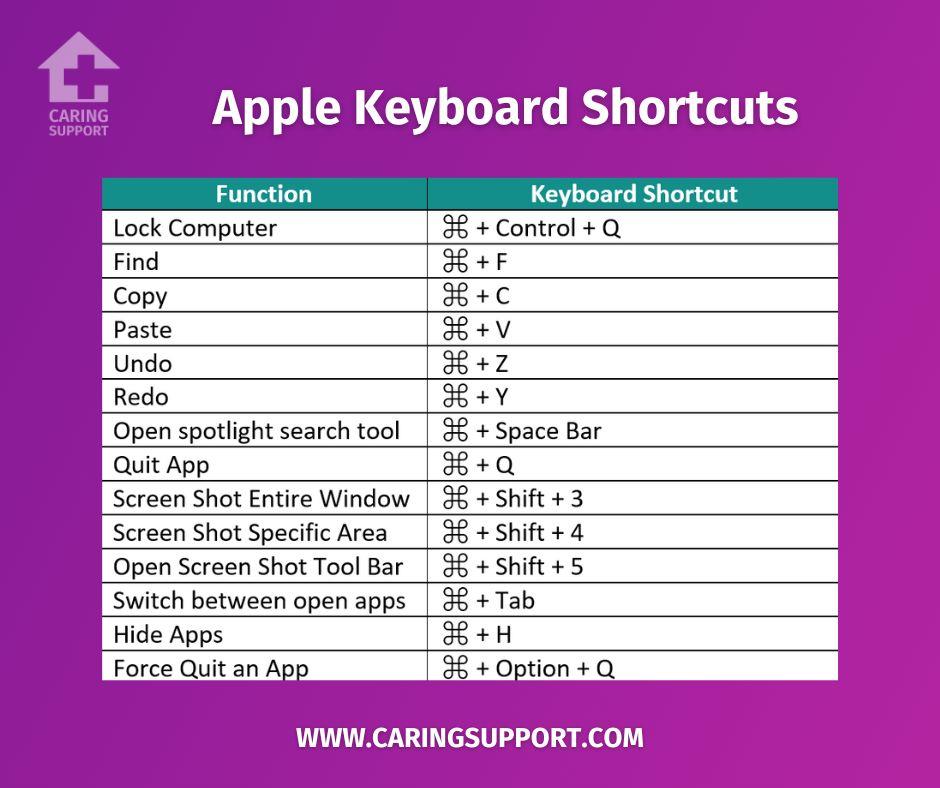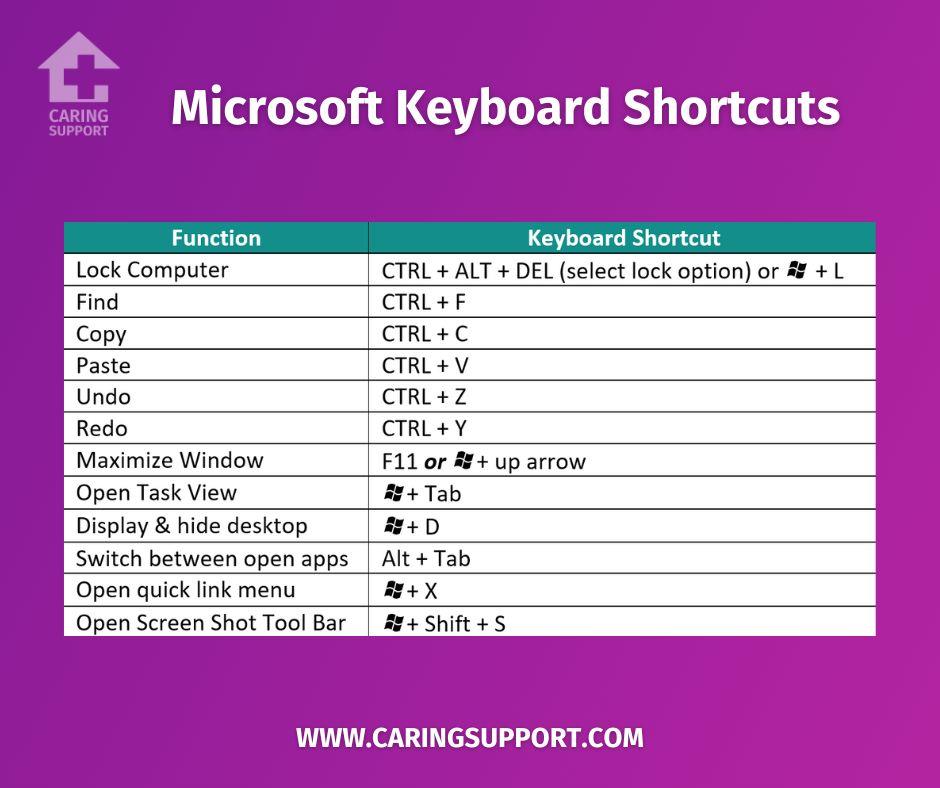Going back to school can be stressful. The thought of the unknown (ie. what to expect, how hard will this be, will I be able to do this, will I succeed, will I fail, etc.) can be overwhelming and downright scary for some healthcare students. That’s ok. You are not alone. There are some things that you can do to ensure that you survive your educational career and Caring Support is here to help with some healthcare student survival tips.
1. Don’t Let Your Studies Take Over Your Life.
It can be easy to throw yourself into your studies and toss everything else aside, but don't forget to take time for yourself. It's important to remember to take time to enjoy non-healthcare related activities like practicing self-care, going to a movie, going out with friends, checking in with family, playing sports, etc., so that your brain has a chance to rejuvenate and be ready for your next round of classes, exams, and studies sessions!
2. Learn Keyboard Shortcuts To Make Your Studying Life Simpler.
There is so much to learn as a healthcare student and as you go through your courses you will end up with tons of lectures and material to study so it will get increasingly harder to keep track of your notes. Keyboard shortcuts like CTRL + F will help you look something up quickly saving you precious study time.
Apple Keyboard Shortcuts:

Microsoft Keyboard Shortcuts:

3. Learn How To Study.
Other healthcare students will share how they learn, the notecards they make, and what works for them, but don’t feel that you need to do the same things because what works for them may not work for you. You will learn at a different pace and your study habits need to be your own. Be happy for them that they have found what works for them, take suggestions if you want to, but ultimately you need to find the methods that work best for you.
Some study methods you should research are:
SQ3R Method
Retrieval Practice
Speed Practice
PQ4R Method
Feynman Technique
Leitner System
Color Coded Notes
See this article from the University of St. Augustine for Health Sciences for more information on these study methods and more.
There are many more methods out there, and the ones mentioned may not work for you. Find what works for you and stick with it. You got this!
4. Don't Compare Yourself To Others.
You will learn at a different pace than your peers. You will have strengths and weaknesses that are different than other healthcare students – that is ok! At the end of the day, you are all in school for the same reason: to achieve an education in your healthcare field so that you can be the best healthcare worker that you can when you are our in the work force.
5. Seek Out Older Healthcare Students (Find A Mentor)
If you have a mentor in your corner, you will have a wealth of knowledge at your fingertips. They will know where the best study spots are, advice on professors, best places to celebrate after a successful exam, study tips, and offer general support. If you are unsure where to find a mentor, you can always go to the student counsellor or student office at your school and ask to be introduced to one. You won’t regret it and sometimes they can become lifelong friends.
6. Nurture Meaningful Friendships And Don’t Forget To Check In With Family.
Take time to get to know your classmates. You won’t regret it and you may even find lifelong friends that will walk by your side through your educational career and right into life after college.
Healthcare studies can be hard and time consuming and you may find that other friends and family will be missing your presence so make sure to check in with them once in awhile to update them on how you’re doing.
7. It’s Ok To Not Be Ok And To Need To Ask For Help.
If you are struggling with a topic that you are studying there are many avenues that you can reach out to for help: professors, TA’S, tutors, classmates, your mentor. Don’t wait to long to ask for help if there is something you are not understanding. The sooner you ask for help, the easier it will be for you to move on to the next topic.
If you are struggling with your mental health while in school, there are also many options for seeking help for your mental health: student counsellor, your family doctor, your friends, your family, classmates, helplines, etc. Just remember; you are not alone. Taking on something as intense as healthcare studies can leave you feeling alone, overwhelmed, and stressed out. It’s ok to not be ok and it’s ok to reach out for help when you need it.
8. Act The Part Of A Healthcare Worker.
It’s never too early in your healthcare career to start focusing on how you act professionally. This could mean:
Cleaning up your social media accounts: Checking your privacy settings and making sure that any public posts you have shared are something you would want a potential employer to see.
Cleaning up your look: If you will be wearing scrubs, start looking for some now that fit properly, are comfortable etc.
Be kind and courteous to others around you: Some of your best references will come from classmates and professors when you first start out on your job hunt.
If you want to read more about how your social media presence could affect your job hunt, you can take a look at our article titled “How Does Social Media Affect Your Healthcare Career?”
You’ve Graduated! Congratulations! Now What?
Good question, but one that Caring Support is proud to be here to help you with.
Your first step is to sign up for your FREE Caring Support account where you will have access to hundreds of top healthcare employers across the province! Then help over to our blog where you will find many articles dedicated to how to navigate your job search and what you can expect during that process.
Once you secure your dream healthcare job using Caring Support, we would love to hear from you! We’re always looking for amazing success stories to share on our podcast, our blog and social media channels.
Source: https://www.caringsupport.com/blog/survival-tips-for-healthcare-students